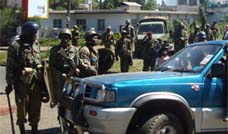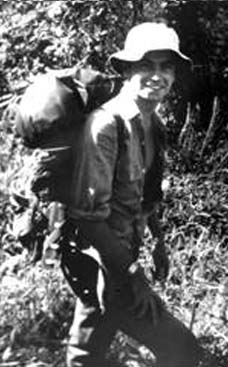
As certain pockets of wealthy, well-educated white Americans become increasingly isolated from the rest of the world, they develop anxieties and coping mechanisms that may never have existed before. They hand dollar bills to beggars (but only the meeker, cleaner ones), shop at fair-trade coffee stores and give gifts made by Peruvian street children, and cluck at CNN and send checks to the Red Cross when there’s an earthquake in Indonesia. In other words, they experience, then seek to expunge, privilege guilt. There is nothing at all wrong with this; caring at all is better than not caring.
In "Chatter" by Perrin Ireland Michael discovers he has a grown daughter, Camila, from an affair that took place while he was in the Peace Corps in Latin America
Reviewed: Perrin Ireland's Chatter
By Britt Peterson
Posted: October 31, 2007
Chatter
By Perrin Ireland
Algonquin Books of Chapel Hill, 256 pp., $23.95
As certain pockets of wealthy, well-educated white Americans become increasingly isolated from the rest of the world, they develop anxieties and coping mechanisms that may never have existed before. They hand dollar bills to beggars (but only the meeker, cleaner ones), shop at fair-trade coffee stores and give gifts made by Peruvian street children, and cluck at CNN and send checks to the Red Cross when there’s an earthquake in Indonesia. In other words, they experience, then seek to expunge, privilege guilt. There is nothing at all wrong with this; caring at all is better than not caring.
But the phenomenon presents a major problem for novelists: how to describe states of mind that vast majorities of the world find self-indulgent, reprehensible, or simply irritating. This is the problem Perrin Ireland’s new novel, Chatter, faces. And Ireland doesn’t quite find a solution for it—which is unfortunate, because she’s a talented writer, gifted at squeezing out the delicate little details of relationships, particularly of marriages. But in Chatter, as occasionally in her first novel, 2000’s Ana Imagined, the characters just feel too self-absorbed to be sympathetic, even when (especially when!) they are confronted with incursions from that strange, hairy real world beyond the boundaries of Harvard Square.
The central figure of Chatter is Sarah, a middle-aged, semisuccessful novelist living in Cambridge, Mass., with her businessman husband, Michael. The marriage is portrayed as an even-keeled meeting of opposite minds; Michael has a daughter from a first marriage, but he and Sarah are childless by design, and he spends much of his time traveling for work. Sarah is the sort of ruminative, hyperself-aware woman who thinks things like, “Last week she’d made inquiries about working at Amnesty International and the ACLU, but hesitated, because there was always one teensy policy position with which she disagreed.”
But her insulated world comes under threat, first when her best friend, Rachel, develops cancer, and next when Michael discovers he has a grown daughter, Camila, from an affair that took place while he was in the Peace Corps in Latin America. Like Ana Imagined (which described a middle-aged, semisuccessful novelist living in Cambridge with her businessman husband and writing a novel about a woman working to survive through the war in Sarajevo), Chatter employs these destabilizing menaces more as plot points to challenge her characters than as ideas to be explored in themselves.
Camila never becomes more than a figure for the Third World encroaching threateningly into the first; the novel lumps her in with revolution in Haiti, the Vietnam War, the Iraq War, and terrorism as frightening but properly distant things that normally enter our psyches as the droning, indistinguishable “chatter” of the title. (If this all reminds you of Don DeLillo’s White Noise, well, it should.) Sarah is aware enough of her prejudices to admit, for example, that on a plane she “eyed the other passengers in a racial-profiling sort of way.” But that clarity is not enough as long as the novel itself replicates Sarah’s limitations in the way the characters are created.
Again, this is a pity more than anything else, as there is much to enjoy in Chatter: the dialogue between Sarah and Michael, which seems a very pure distillation of a marriage’s own “chatter”; the clean, precise descriptive voice; the skilled building of momentum and suspense. Ireland would do best, in the future, to burst free of the infinitely regressive self-awareness of the Sarah-type character, while still holding on to her clear-eyed curiosity about the inhabitants of the fragile American bubble.









